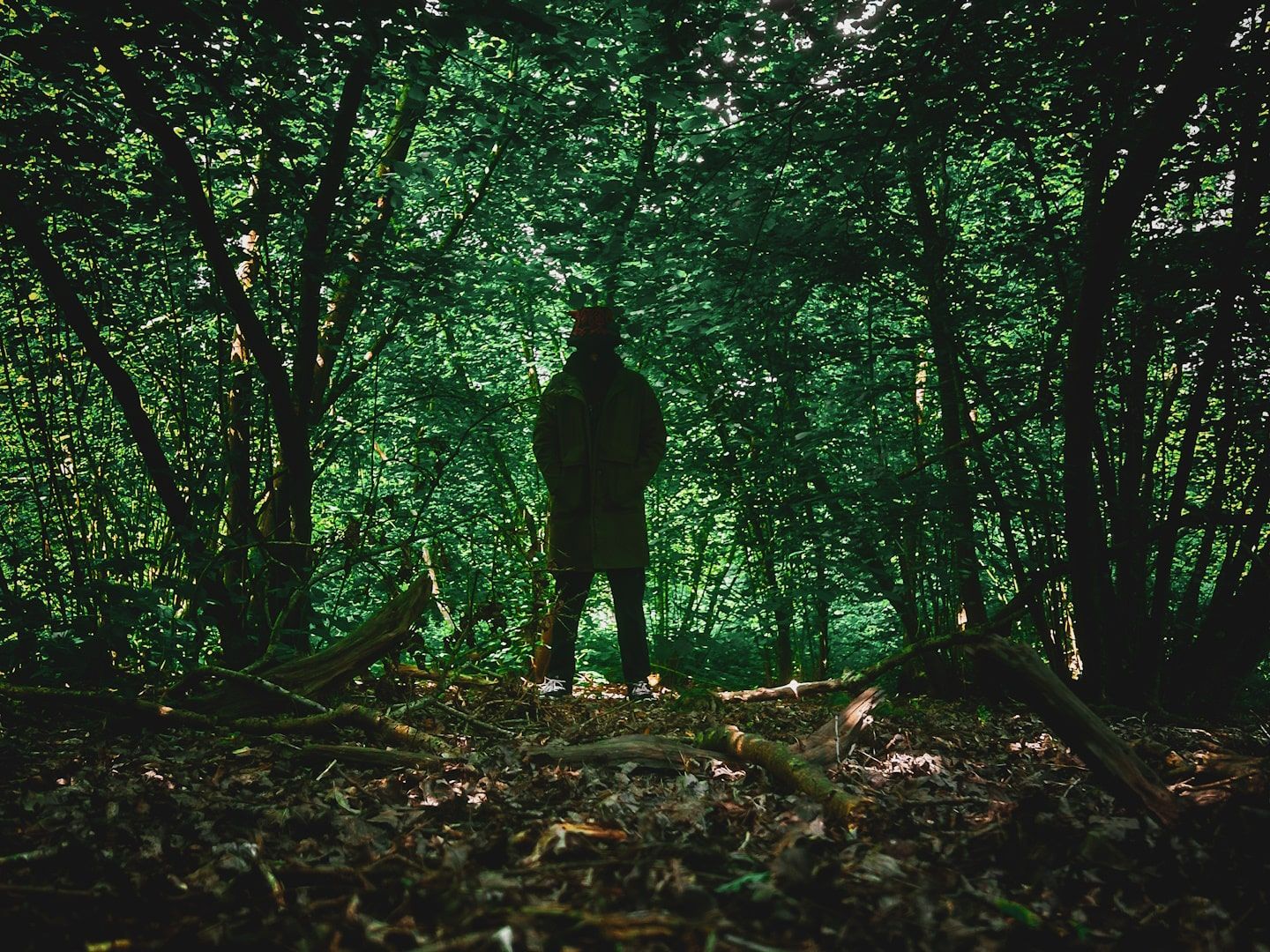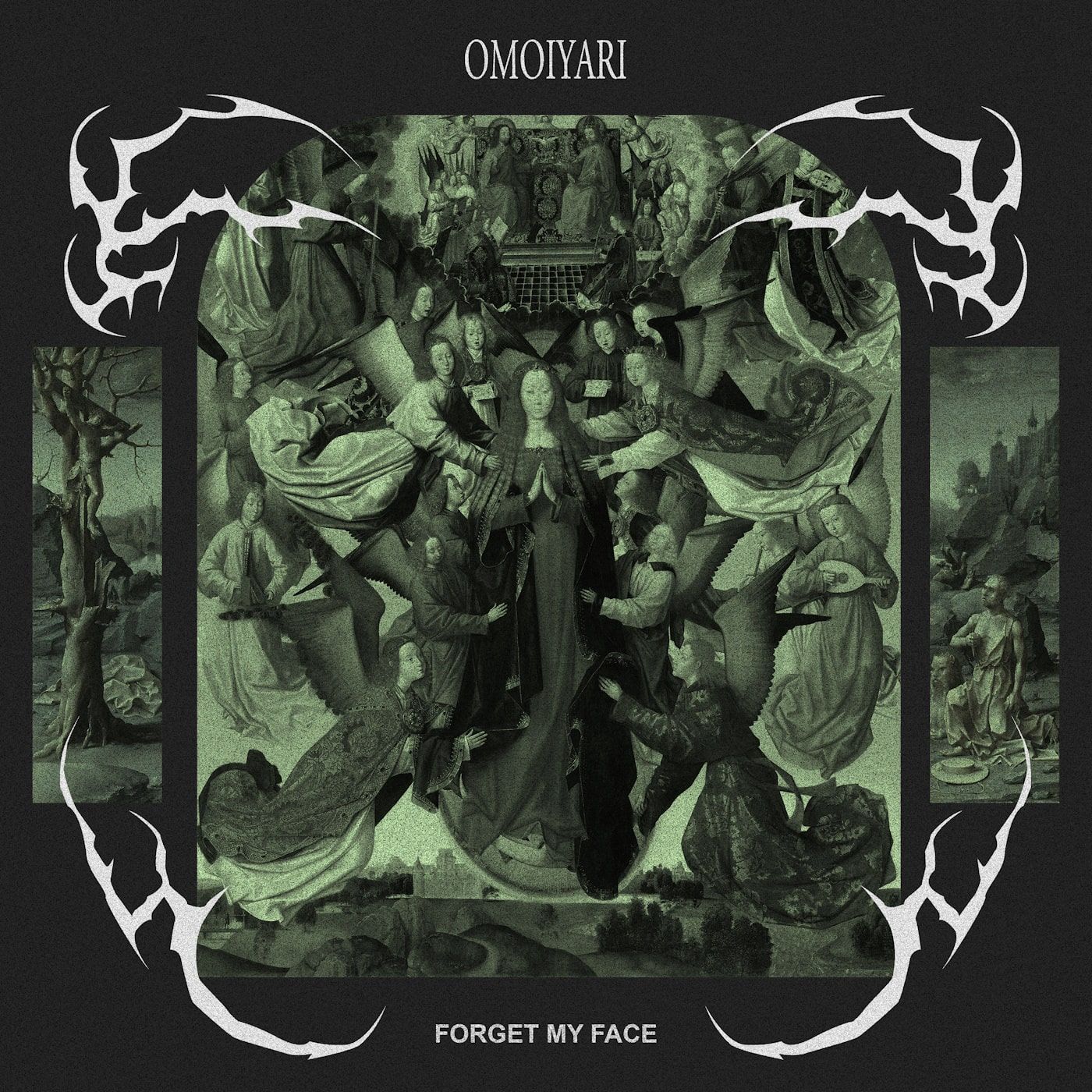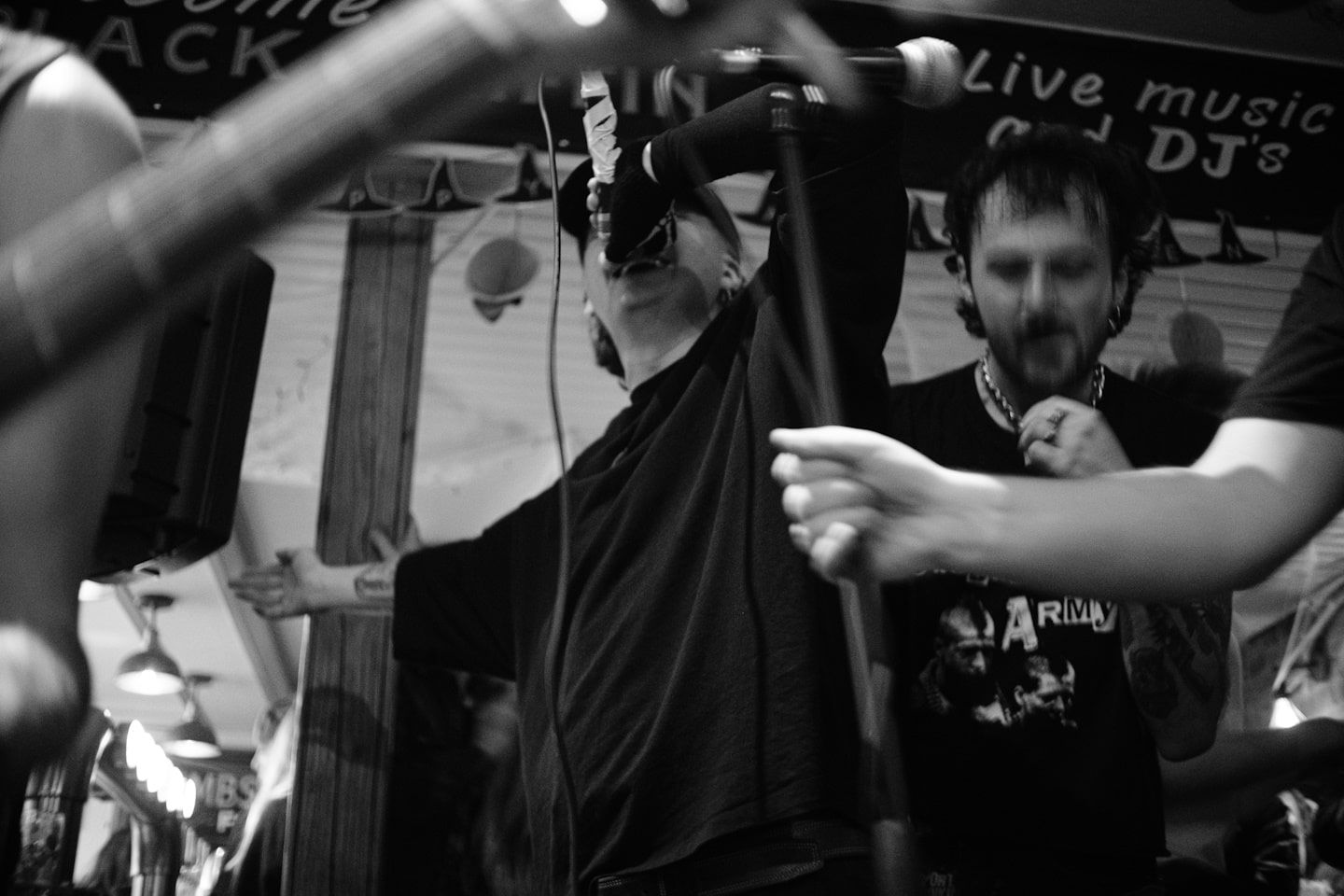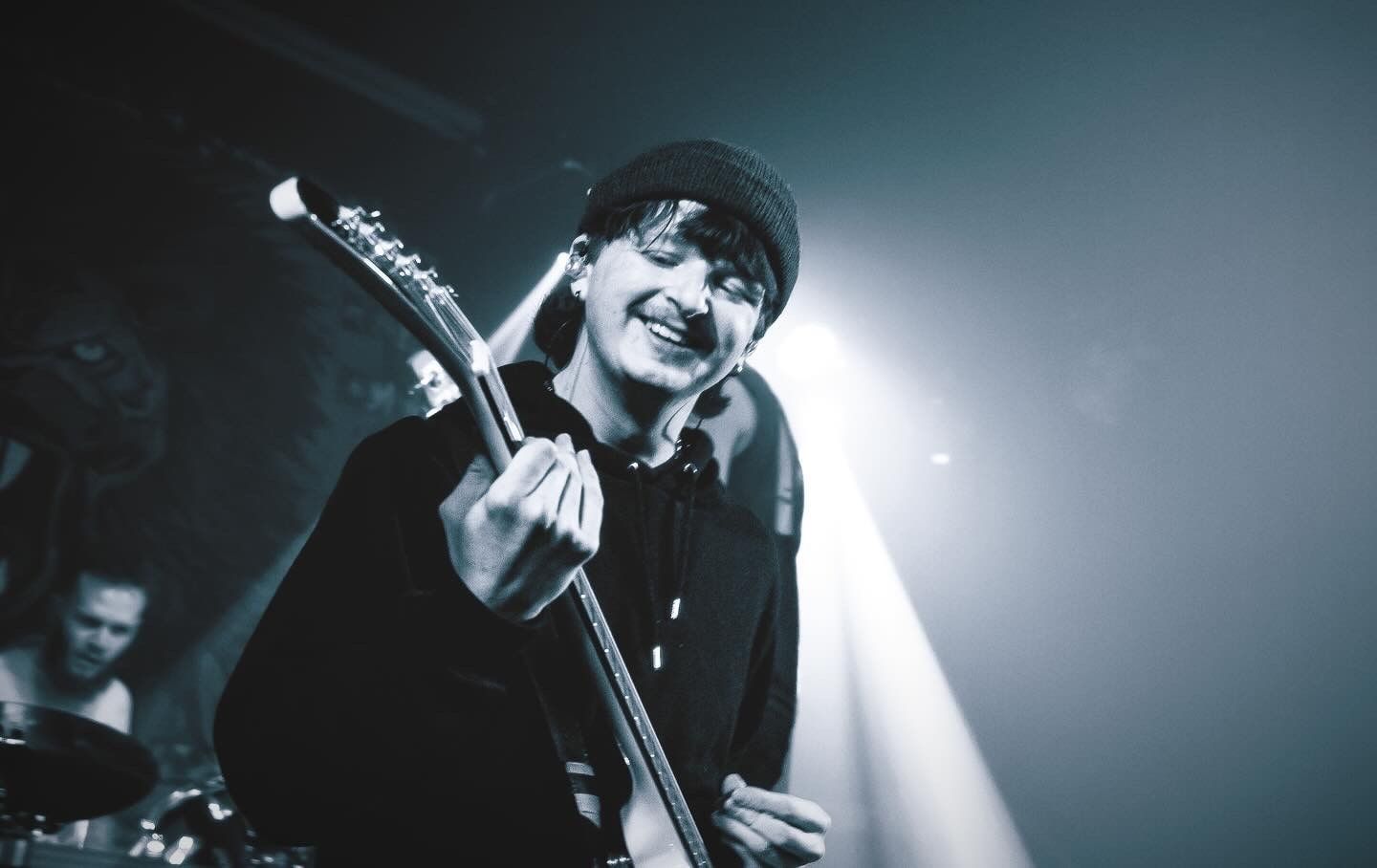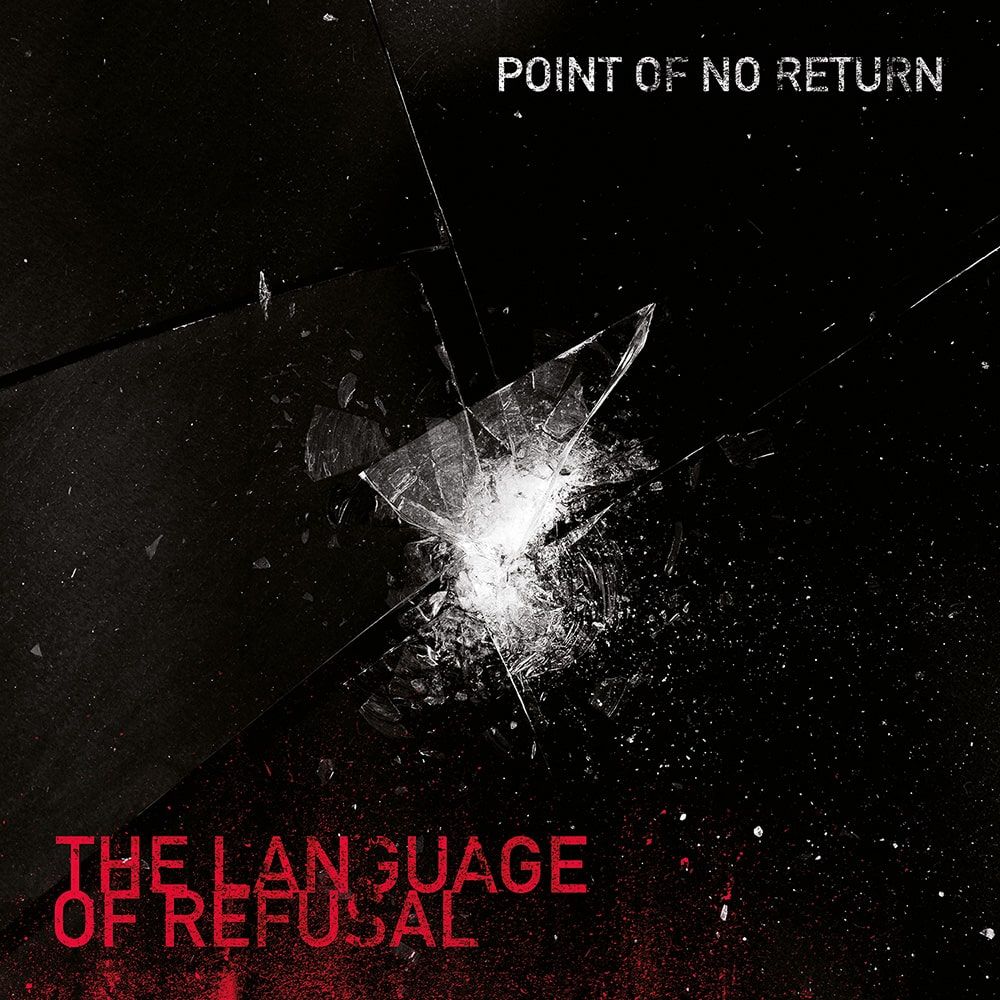OMOIYARI, the brainchild of El Tyler, known for their work with AMORIST, TAG DAY, and HOUNDING, has released their debut single, ‘FORGET MY FACE,’ on June 14th, 2024, under the DIY label A Cozy Death. We had the chance to sit down with Tyler and dive into the heart of this project, uncovering the intricate layers behind the music, the themes it explores, and the journey that brought it to life.
OMOIYARI started as a deeply personal and creative outlet for Tyler, evolving from a raw, hardcore demo to a refined and polished sound that still retains its aggressive roots. Unlike Tyler’s previous projects, OMOIYARI embodies a more reflective and experimental approach, allowing for growth and exploration beyond familiar territories.
“The name ‘OMOIYARI’ is a nod to the Japanese concept of compassion and altruism,” Tyler explains. “Growing up with Japanese lodgers, I felt a deep connection to the culture. The name feels right; it’s personal, meaningful, and it represents the depth of what I’m trying to convey through my music.”
At its core, ‘FORGET MY FACE’ is a raw outcry against the pervasive cult worship of technology and the incessant chase for virtual validation. Tyler’s lyrics delve into the societal addiction to social media and the hollow pursuit of digital accolades, presenting a stark critique of modern technological angst.
“This single is my rebellion against the technological shackles that stifle genuine creativity,” Tyler shares. “I’ve been trapped in the loop of chasing streams and likes, and ‘FORGET MY FACE’ is my way of breaking free. It’s about creating art for its own sake, without the pressure of numbers and algorithms.”
The cover art for ‘FORGET MY FACE’ is a reimagined 15th-century painting, ‘Mary, Queen of Heaven,’ overlaid with cyber sigils to symbolize the encroachment of AI and technology on human creativity. This visual representation mirrors the song’s themes, illustrating the conflict between authentic expression and digital corruption.
Tyler’s artistic vision extends beyond music into a broader conceptual landscape. The upcoming concept album, still in its nascent stages, promises to delve into themes of ego death and societal reconstruction in a cyberpunk-inspired world. Influenced by the dystopian vibes of ‘Cyberpunk 2077,’ this album will be a testament to Tyler’s evolving sound and creative mind.
“OMOIYARI is all about being true to myself and my art,” Tyler concludes. “I’m excited to see where this journey takes me, but I know it’ll always be about creating music that’s real, intimate, and unapologetically me.”
In this interview, we delved into El Tyler’s journey with OMOIYARI, exploring the project’s inception, thematic depth, personal struggles, and the raw, uncompromising message behind ‘FORGET MY FACE.’
What’s the deal with the name OMOIYARI? What made you pick that name for the band?
‘OMOIYARI’ is a Japanese word rooted in compassion, caring for others, and sending altruistic feelings to others. I grew up in a house with Japanese lodgers so Japanese culture has always been somewhat of an intrinsically linked thing to me. I wanted to go with a name that tied to my identity as well as holding strong meaning. I like that people don’t know what it means at first, you know?
It feels reflective of the music and art I make. A lot of people won’t scratch beyond the surface of me or of ‘oh it’s just screaming’ and that’s cool to me. It’s like it’s own private club.
How did OMOIYARI kick off? What sparked the idea? Also, how’s OMOIYARI different from your stuff with AMORIST, TAG DAY, and HOUNDING?
OMOIYARI began as just a freely creative outlet that felt wholly personal and authentic to me. It started with a 3 minute beatdown, caveman-riff hardcore demo I wrote and recorded in a single day just with the intent of throwing it out into the ether, but then as I started to write more stuff in this style, I felt I wanted to learn more about my writing style and production style than just going with what I know.
I feel like where I’ve never really stopped writing music for the last 7 or so years, I hadn’t really allowed myself that reflective space to think ‘how do I develop beyond what I know?’. I knew I could sit and write a Tag Day album or a Hounding EP across a few days, or write 30 odd songs and edit them down to 4, but what happens when I take more time at the writing stage rather than at the editing stage?
Stylistically, I think theres a stark difference between OMOIYARI and Tag Day/Hounding particularly, but if you delve deeper into the lyricism and structures, there’s a lot of common ground. With AMORIST, I think the sonic similarities are closer, but with a more DIY edge. That feels a bit more me. Rough around the edges, not polished. OMOIYARI essentially feels like the culmination of everything I’ve done before, gritty, but conceptually rounded.
Can you chat about the themes in FORGET MY FACE? What’s the message?
FORGET MY FACE is all about angst, anger, and allowing those feeling to be processed. The concept is based around the cult worship of technology and the pursuit of status, and basically is just me screaming about how I’m done with that. I definitely got trapped in that loop of checking stream numbers and worrying about social media content and algorithms for a long time and I think it heavily detriments the creative process. FORGET MY FACE is an effigy to that.
It’s me saying ‘you can chase your virtual accolades and viral moments, I’m just going to make the art I want to make for the sake of it, and if that means I lose this tiny amount of renown I’ve gained in music, so be it’. I wanted to portray this sort of claustrophobic, shouting into the void feeling to hold a mirror up to the technological age we’re in now; the cult worship of celebrity and influencers, the emphasis on numbers on a screen. At the end of the day, none of it matters, what lasts longer than these digits is the art we make that is human, real, intimate and personal.
What’s the story behind the cover art?
The main focal point is a 15th century painting called ‘Mary, Queen of Heaven’. I wanted to create something that reflected the themes of the song, so I took this image of a beautiful painting and dulled it down. The cyber sigilism encroaching in is meant to represent the corruption of AI and the dependence of society on technology creeping into authentic creativity, but also on human nature.
The whole point of creativity is expression, yet in many ways this is being dulled down by how easy everything is becoming. You have the world at your fingertips 24/7, so where does curiosity go? Where does authentic expression go?
What led to your break from live gigs? How’s it been affecting you?
I think is started as a slow burn and built up, especially since COVID. I had subconsciously programmed myself to feel like if I didn’t write and record 2 or 3 songs a week; I was slacking. If I wasn’t booking shows, or if less people were turning up to my shows; I was failing. I found myself checking stream numbers daily.
When AMORIST kicked off, it was still COVID. We had that dream start of signing with Beth Shalom Records and around the same time my solo work in Tag Day started gaining some traction when I signed to Friend Club Records. I thought I was doing really well musically and mentally because both these things were things I had strived for and worked tirelessly for. In that year I wrote over 300 songs, released 10 or so EPs and two albums. I was dead set on treating it like a job.
Then, of course, the burnout hit, lockdown became tighter and I – like many others – was shut in a room for 99% of the day. I was forced to do some introspection that I don’t think ever really stopped. I thought at the time that this was a good thing, but when it got to last year and I suffered a monumental personal grief and I just had no space to process it, I realised I wasn’t doing better, I was just distracted. It wasn’t catharsis, it was just something else to think about.
When that burnout hit and I had to stop and think ‘what am I doing?’, it was a really poignant moment, and no amount of re-aligning or altering my relationship with music was helping.
What it comes down to is the constant pressure to do better and putting on this performative front just stopped working for me for now. I really struggled with the idea of being perceived, if that makes sense. The fact that my identity had become so inextricably linked to being the dude that screams and shouts on stage and moshes and climbs tables and hangs off rafters, when in my day to day life, I couldn’t be further from that… it just felt wrong to me. And when you’re in band with 3 other people whose image and career is also dependent on that performance, it’s no wonder I got so burned out and stressed.
So for now, I’m taking a break from that to focus on life, on growth, and on my relationship with music. I definitely feel like I’ve been less stressed! I’ve stopped feeling anxious when I don’t make a TikTok each week or write twenty songs a month. I’ve been finding the mental state to deal with my grief and to work on some new music that just feels really personal and good. I’ll be back for sure though!
What’s the scoop on your DIY label, A COZY DEATH? What are you aiming for with it?
ACD is just this really cool project I’ve had in mind for a while. I had a conversation with a good friend where he spoke about how more genres should have labels that operate on a track by track basis instead of signings and record deals. I’d had this inkling for a DIY label in my head for a while but worried about the pressure of expectation with signing bands etc. and that conversation just opened up a whole new world of possibilities, so I owe quite a lot of it to my buddies George and Yog.
ACD is going to be DIY for DIY, its going to be mates for mates. I’m planning on just using it to work with a bunch of cool bands and help them have a helping hand in releasing music and merch and stuff. ACD is for the people that deserve to have their voices heard.
What can we look forward to with your upcoming concept album? Any key themes or stories?
The concept album! It’s in the works for sure! I’m slowly approaching it, writing when I feel like it and what I feel like. I’m learning so much in the process that its just really fun. The key themes will be around ego death and that cult worship of technology I discussed above but with a lot of stuff about my own journey and my own emotions mangled in. I really want to push myself creatively and lyrically so I’m building a whole world around the album.
The idea is based around the breakdown of society and the rebuilding of a new, I guess cyberpunk world. I played a lot of cyberpunk 2077 last year and the soundtrack of that and themes in that were just really interesting to me, so I kind of want it to sound like that, but also like the bands I love, and also unapologetically me!
It’ll follow a lot of the themes I’ve laid out during this interview too – at least I’ll do my best to cover everything. I’ve always written albums around a concept so this will be no different conceptually, sonically however? Expect a cacophony! The stuff I’ve written for it so far is some of my favourite stuff I’ve worked on and takes things into such a new direction for me.
Where do you see OMOIYARI heading next? Any new sounds or ideas you’re excited about?
I think the beauty of this project is always going to be in not knowing where I’m heading next and being content with that. I’ll never be trying to make a viral moment, it’ll always just be art for arts sake. The singles I’ve been working on – a part of the aforementioned album – tie in a lot of new influences I haven’t really explored much before, I’m really excited about this metal-core/nu-gaze track I’ve written.
My partner has been getting me into a tonne of new bands and thats been really refreshing. I’ve also lined up a couple of features that I just really wanted to work with, so that’s really exciting too. Essentially, wherever I’m heading next, it’ll be authentically me, it’ll be personal, there’ll be no deadlines or expectations, and there will certainly be no TikTok slideshows.



